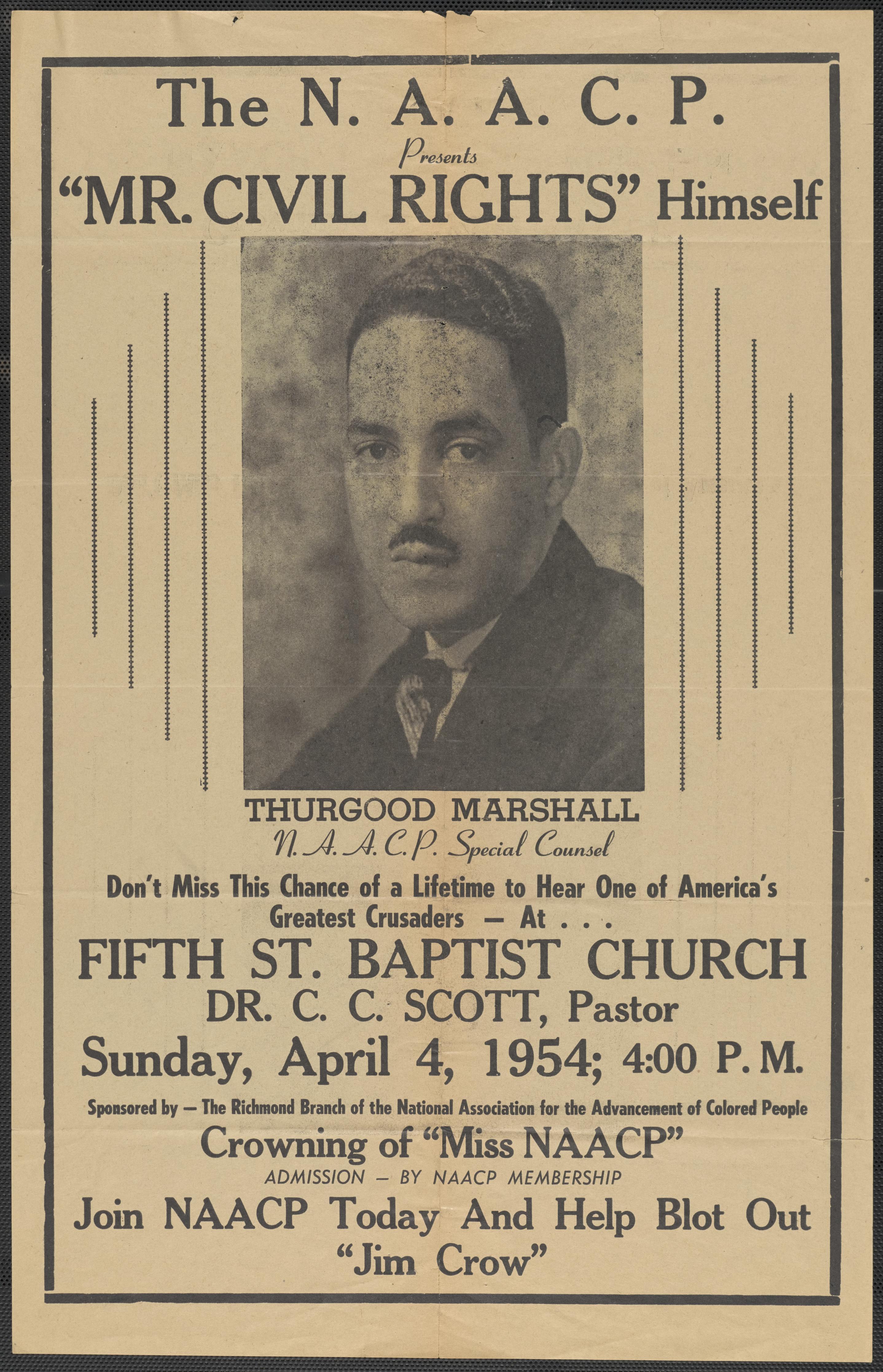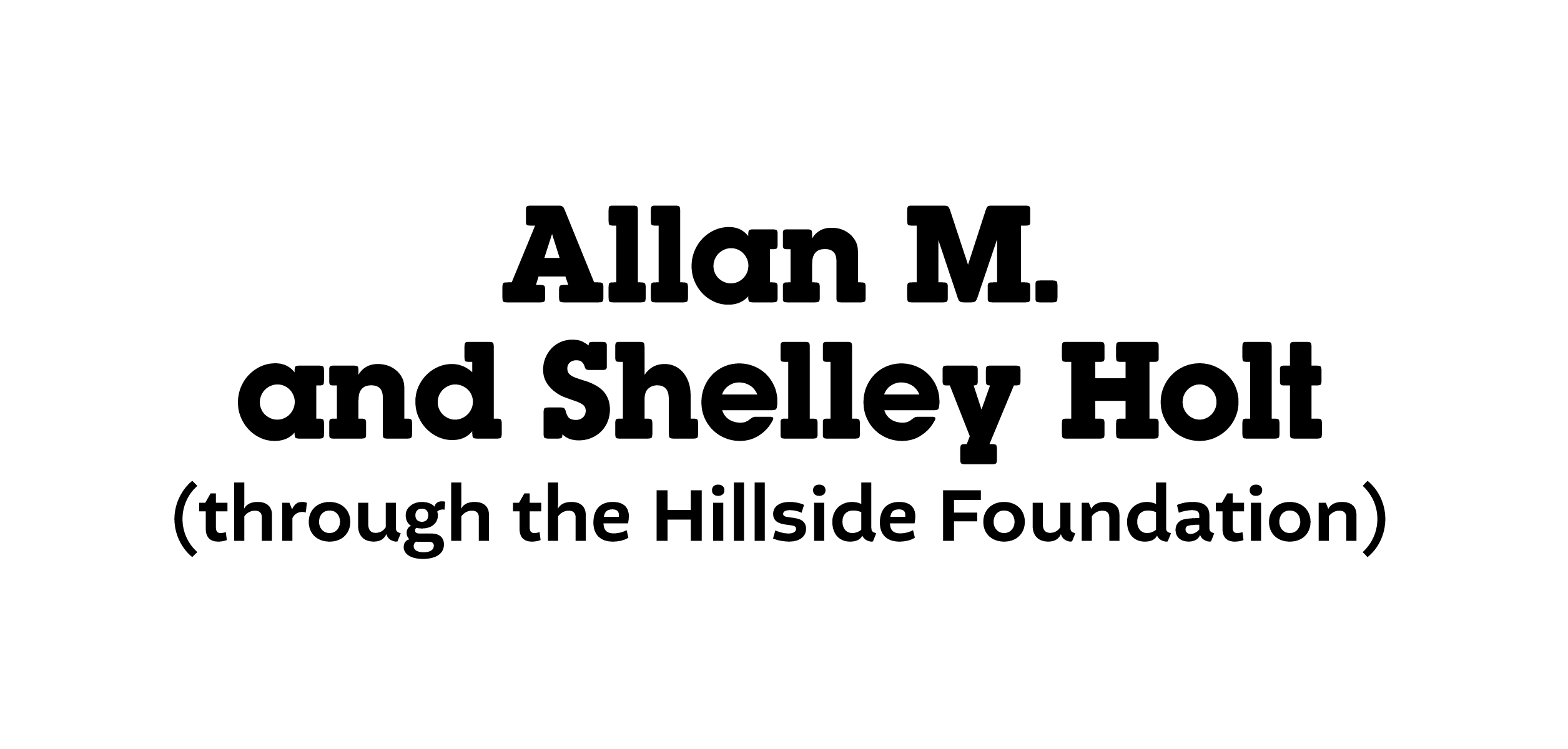Summary

Broadside for event featuring Marshall at Fifth Street Baptist Church, Richmond, Va., 1954
Credit: Library of Congress
The Reconstruction Amendments promised freedom, citizenship and voting rights, yet African Americans still faced discrimination and denial of basic rights. This gap between America’s democratic promises and people’s daily lives set the stage for Thurgood Marshall’s work.
As a civil rights lawyer, Marshall relied on the Reconstruction Amendments to challenge unfair laws that excluded African Americans from full participation in American life. His persistence and belief in democracy helped him win cases that expanded equality and fairness. Marshall’s legacy shows how civil rights became a democracy project that pushed the nation to live up to its ideals.
In this lesson, you:
- Explored why the Reconstruction Amendments were added to the U.S. Constitution
- Identified how African Americans in the United States were denied human rights that were established in the U.S. Constitution through the Reconstruction Amendments
- Explored how the Reconstruction Amendments were the bedrock of Thurgood Marshall’s work
- Identified how Thurgood Marshall used the law to ensure that the ideals of democracy existed for all who lived in the United States
- Made connections to Thurgood Marshall’s legacy and his impact on everyone living in the United States, especially African Americans
By examining the history of the 19th and 20th centuries, you learned how Thurgood Marshall worked to make democracy more equal. His tireless efforts helped ensure that all people in the United States had access to basic human rights. Thurgood Marshall’s work became the foundation for lasting change.











